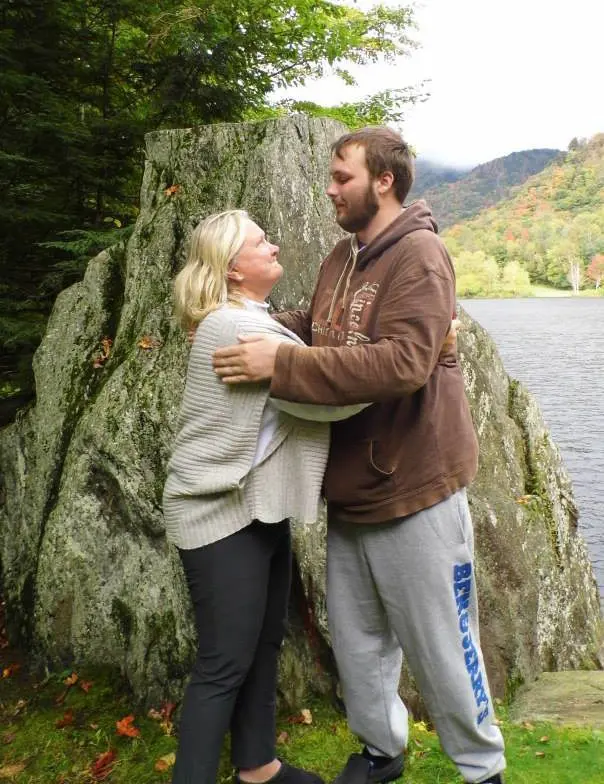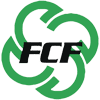A message from Marna Davis, Co-Chairman of the Fibrolamellar Cancer Foundation

Dear fibrolamellar patients and caregivers:
“Fibrolamellar hepatocellular carcinoma.” These three words have probably already had a huge impact on you and your family.
While a cancer diagnosis can be overwhelming, receiving it marks the beginning of a process. There is a lot of work to do. Patients and caregivers need to understand the disease and their treatment options, build a medical team, connect with other patients for support and information, and learn how to effectively self-advocate. However, through it all, remember that each person’s cancer battle is unique. You and your medical team need to make the best decisions for yourself, factoring in potential risks, side effects, and complications.
To try to make this process easier for you, we’ve assembled some facts and resources on this web site that we hope will be helpful during your fibrolamellar journey.
I wish you and your family the best as you face this challenge. Please know that the Fibrolamellar Cancer Foundation is actively working with the research community to develop new treatment options and find a cure for this rare disease. We are here to help.
— Marna Davis, Co-Chairman of FCF and mother of FCF founder, Tucker Davis
Getting started
Below is a list of suggested steps to help you in your fight against fibrolamellar. If you have additional questions or if we can help you in any way, please contact us.
1. Learn the facts
After a diagnosis of fibrolamellar carcinoma (FLC), you likely have many questions about your treatment options and what your journey may look like. The following pages provide valuable information about the disease, summaries of other patient’s experiences with FLC, and the types of treatments your medical team may recommend:
- Basic facts about fibrolamellar
- Frequently asked questions about the disease
- Treatment options
- Faces of Fibrolamellar – summaries of other patients’ experiences
- Glossary of medical terms.
Also potentially useful is this July 2021 recording of a panel discussion and Q&A session for newly diagnosed patients and families featuring the perspectives of an oncology social worker and a pediatric oncologist experienced in treating fibrolamellar. The panelists include:
- Eucharia Borden, MSW and Senior Director, Health Equity and Clinical Services at Cancer Support Community, and
- James Geller, MD, a professor at the University of Cincinnati and the Medical Director of Liver and Renal Tumor Programs at Cincinnati Children’s Hospital Medical Center.
2. Build your care team
If you have been diagnosed with cancer, it is important to see an oncologist or surgeon who has experience in your specific disease. Patients diagnosed with rare cancers like fibrolamellar often have difficulty finding physicians knowledgeable in their disease. Many major medical centers have teams with deep experience in treating FLC patients like you and conduct research into the disease. FCF has compiled a list of doctors who have experience in treating other fibrolamellar patients. Click here to find a physician near you.
For patients interested in patient navigation services, organizations like FibroFighters Foundation can help patients find appropriate treatment teams.
3. Get the right tests
Be sure to ask your treatment team about molecular testing and precision medicine.
Precision medicine tailors your treatments based on the specific genes, proteins and other substances identified in your cancer. Clinical care teams are increasingly using powerful molecular assays, bioinformatics and machine learning (provided by companies including Tempus, Caris, BostonGene, and Pangea Biomed) to identify specific characteristics of patients’ tumors that can help guide treatment selection.
4. Get connected
Currently, there is a broad community of patients, caregivers, doctors, and researchers fighting to find a cure for fibrolamellar. You are not alone. Click here to learn about ways to get your questions answered and build personal connections to others within the fibrolamellar community.
5. Help find your cure

No one is more motivated than patients and their loved ones to help find a cure for FLC. Please consider helping the research community by donating tumor tissue or ascites fluid to the Fibrolamellar Cancer Foundation BioBank through our Tumor Donation Program. Breakthroughs in understanding the causes of FLC and potential treatments would not be possible without the donation of tissue samples by our patients, since some of the basic materials scientists need for their research can only be created from human tumor tissue. Learn more.
In addition, patients are encouraged to participate in the National Cancer Institute’s “Natural History Study for Rare Solid Tumors“. This effort is designed to better understand how rare solid tumors like FLC develop and grow. Natural history studies like this will help researchers learn more about fibrolamellar carcinoma (FLC) and will help shape the design and development of clinical trials to test new treatment options. During the enrollment process, NCI’s clinical care team is happy to review interested patient’s treatment plans and provide second opinions. Learn more.
Find out about clinical trials for fibrolamellar that may be available.
6. Explore other helpful resources
Check out this list of resources that other patients and caregivers have found useful as they have battled the disease.
Learn more about our annual Patient & Family Gathering and other FCF-sponsored events.
7. Share your story
The Fibrolamellar Cancer Foundation is here to help you. Let us know that you are a member of the community by filling out this form.
The information provided herein is not intended to be a substitute for professional medical advice, diagnosis, or treatment. Always seek the advice of a physician about any questions you have regarding medical care. Please never disregard professional medical advice or delay in seeking it because of something you have read on this website.
